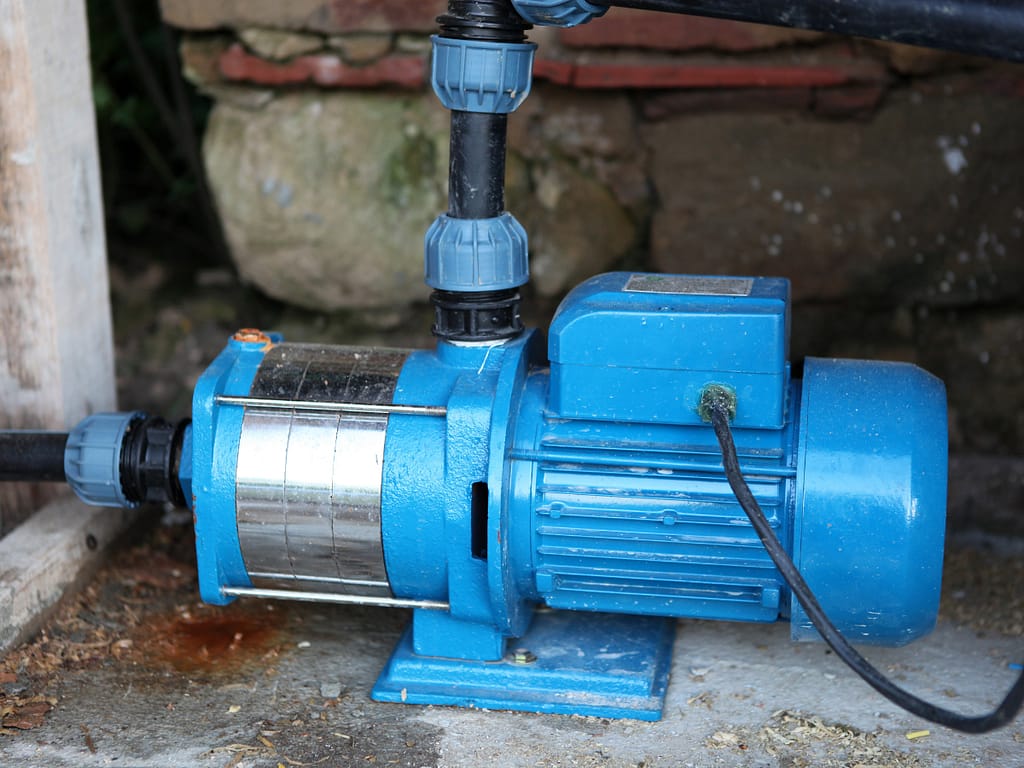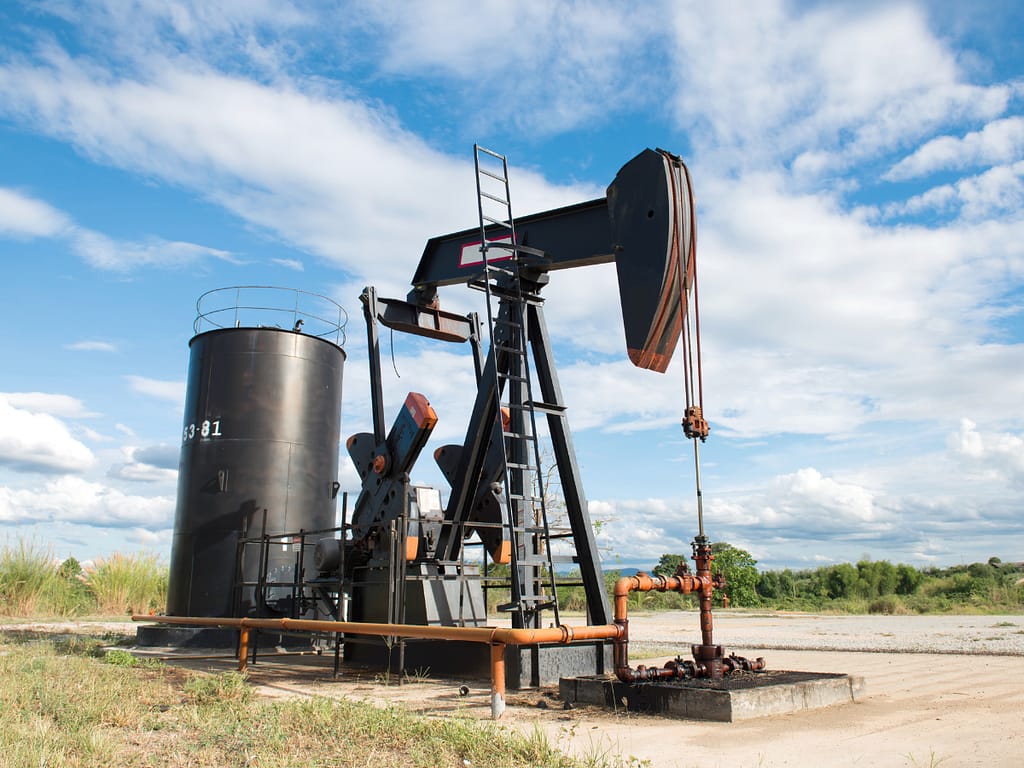Last Updated on October 16, 2024 by SampleBoard
As a homeowner, you may need to realize that industrial pumps are not limited to industrial settings.
They can also be used in residential settings to efficiently manage various tasks around your home.
But what exactly are industrial pumps, and how can they benefit your home?
Industrial pumps are potent devices designed to move fluids, chemicals, and other liquids quickly.
They're often used in industries like oil and gas, processing, and chemicals to achieve specific objectives.
This post will explore the different types of industrial pumps available, their applications in residential settings, and what you need to consider for optimal performance.

Centrifugal Pumps
These industrial pumps use centrifugal force to transfer fluid by converting rotational kinetic energy into hydrodynamic energy.
Centrifugal pumps commonly handle high volumes and pressures, making them suitable for water supply systems, chemical transfer processes, and wastewater treatment plants.
Although every building or home is unique in architecture and operation, it all relies on an HVAC system to ensure its occupants' comfort, well-being, and productivity.
Although different designs and approaches to achieving proper indoor environmental control exist, double-suction centrifugal pumps play a critical role in the performance of chillers, boilers, cooling towers, and hydronic distribution systems.
Positive Displacement Pump
In contrast to centrifugal pumps, positive displacement pumps deliver a fixed fluid volume with each rotation or stroke.
They are ideal for pumping viscous or abrasive fluids and can maintain a steady flow rate regardless of changes in discharge pressure.
Positive displacement pumps find applications in food processing, pharmaceuticals, and mining operations.

Oil & Gas Industry
The oil and gas industry relies heavily on industrial pumps for exploration, production, refining processes, and transportation.
Submersible pumps are often used for extraction activities, whereas multistage centrifugal pumps aid in transporting crude oil over long distances at high pressures.
Water Treatment Plants
Industrial facilities responsible for water treatment depend on various pump types to ensure efficient filtration, purification, and distribution processes.
Specialized water treatment plants designed for sewage or desalination use centrifugal and positive displacement pumps during pumping stages.
Food & Beverage Industry
Sanitary-grade industrial pumps that can handle delicate ingredients without contamination risks are necessary for food-related businesses.
Centrifugal brewing equipment ensures precise temperature control during beer production, while positive displacement pumps facilitate the transfer of viscous liquids such as honey or molasses in candy manufacturing.
Chemical Processing
Specially constructed industrial pumps capable of safely handling corrosive and hazardous substances are necessary for chemical plants.
Magnetic drive centrifugal pumps offer an excellent solution by eliminating the need for seals and ensuring leak-free performance even with toxic or volatile materials.

First, understand the specific tasks or applications for which you need the pump.
Once you identify the purpose, select the appropriate type of industrial pump based on your requirements, such as water supply, sewage handling, or chemical transfer.
Follow the installation guidelines provided by the manufacturer to ensure proper setup, which may involve considerations such as electrical connections, fluid inlet and outlet positioning, and any necessary safety measures.
To ensure optimal operation and longevity, regularly monitor the pump's performance, inspect for leaks, and adhere to the recommended maintenance schedule.
If in doubt, seek guidance from a professional to ensure safe and efficient use of industrial pumps at home.


Pump Selection
Selecting a pump within its optimal range is crucial to enhancing energy efficiency.
Choosing a pump that matches the specific application's requirements can significantly reduce energy consumption and operating costs.
Pump Speed Control
Many industrial applications do not require pumps to run continuously at total capacity.
Using flow-control devices or variable frequency drives (VFDs) allows adjusting the speed of industrial pumps according to demand, leading to substantial energy savings over time.
System Design Optimization
A well-designed pumping system factors in pipe size, length, fittings, and controls to minimize friction losses and pressure drops.
Carefully choosing piping materials can reduce corrosion risks and increase the system's longevity and efficiency.
Regular Maintenance
Regular maintenance is essential for industrial pumps to operate at their best and last a long time.
This maintenance includes inspecting for leaks, cleaning or replacing filters, lubricating mechanical parts, and monitoring fluid levels.
By following a comprehensive maintenance schedule, businesses can prevent unexpected breakdowns and costly repairs.
Monitoring Pump Performance
Monitoring pump performance metrics closely is crucial to identifying potential issues early on.
Factors such as flow rate, pressure, temperature, and motor amperage can help detect abnormalities or deviations from normal operating parameters, indicating the need for immediate attention or further investigation.
Troubleshooting Common Problems
Even with regular maintenance efforts, industrial pumps may encounter occasional problems.
Familiarizing oneself with common pump issues such as cavitation (the formation of vapor bubbles causing noise and vibration) or impeller damage ensures quick troubleshooting actions to mitigate damage and prevent downtime.
Consulting with pump manufacturers or seeking professional support may be necessary in complex cases.

Numerous industries worldwide rely on industrial pumps because they efficiently and effectively transport fluids.
Understanding different pump types, their applications across diverse industries and at home, and how factors such as proper pump selection, variable speed control, and system design optimization influence efficient performance is vital for businesses seeking improved operational efficiency.
Implementing these critical factors alongside ongoing maintenance allows industries to ensure reliable pump operation, optimize energy consumption, and reduce operating costs.